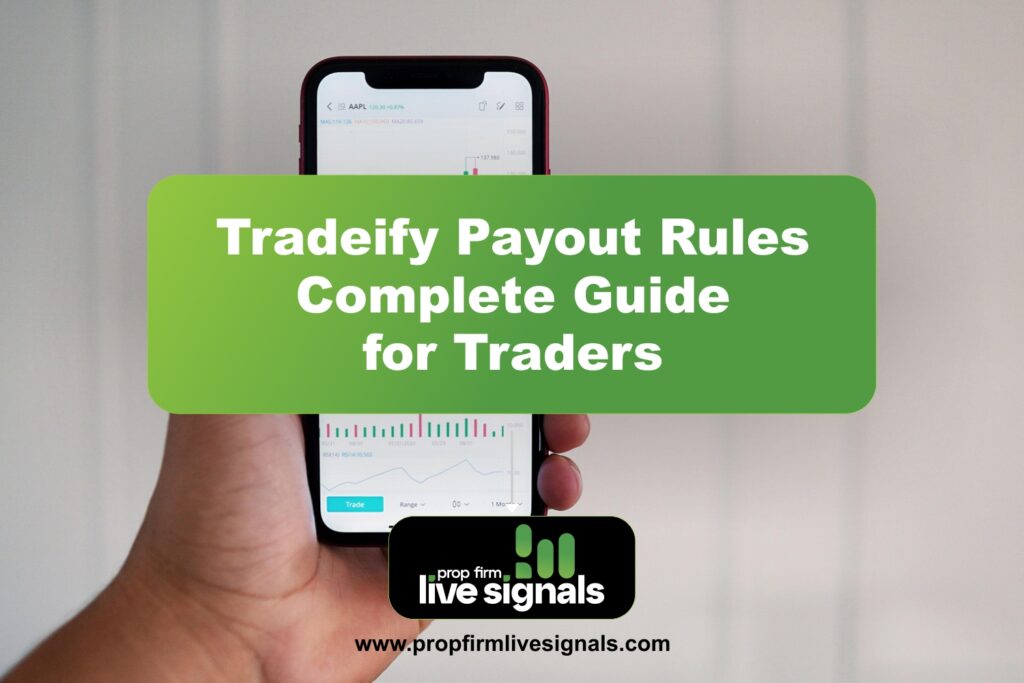This is especially true for swing traders, who hold positions for several days or even weeks to reap benefits from price movements. Nevertheless, for the purpose of achieving very successful results, a swing trader needs to choose the right prop firm.
The article will review what a prop firm should essentially be like to suit swing trading; what problems swing traders face in standard prop firm conditions, and also provide some sort of review of the best prop firms available to this trading style.
Understanding Swing Trading
Swing trading is a strategy that focuses on capturing short to medium-term price movements in financial markets.
As opposed to day trading, where positions are held for minutes or hours, the swing trader maintains positions for several days and sometimes even weeks.
This way, the potential to catch bigger moves in prices is enormous, avoiding the time and stress associated with day trading.
Key Characteristics of Swing Trading
- Time Frame: The duration for swing trades usually spans from days up to weeks.
- Market Analysis: Swing traders heavily depend on technical analysis and chart patterns to identify potential entry and exit points.
- Risk Management: Effective risk management practices, such as stopping-loss orders and determining position size based on account equity, are common.
The Role of Prop Firms in Swing Trading
Prop firms give traders capital against profit sharing, actually, from the trades. This model allows traders to utilize the firm’s resources while minimizing their financial exposure. In the case of a swing trader, this may mean substantial capital that otherwise would not be available.
Benefits of Joining a Prop Firm
- Access to Capital: Most prop firms have very substantial funding, which means traders can take positions larger than they would normally be able to with only personal funds.
- Advanced Trading Tools: Advanced charting tools and analytics are available through most prop firms’ trading platforms.
- Educational Resources: Many firms would host programs for training and mentorship that assist traders in improving their skills and strategies.
- Community Support: Often, being part of a prop firm involves belonging to a community of like minded traders where ideas and support can be shared.
Challenges Swing Traders Face with Prop Firms
While prop firms have plenty of benefits, there are challenges, too, that hold back the success of swing traders. One prominent issue is the evaluation process for many firms when it comes to selecting new traders.
Evaluation Processes
Most prop firms assess traders with an evaluation process in which a trader has to show their trading skills within a predetermined time frame. These evaluations can include:
- Profit Targets: Traders must realize certain profit targets during the limited evaluation period.
- Drawdown Limits: Strict limits set forth by the firms concerning drawdowns, which is at odds with swing traders, who will regularly need to hold positions longer.
- Time Constraints: Many evaluations have time limits, which could be against the nature of any type of swing trading, where trades sometimes take their time to mature.
These constraints can lead to early liquidation of profitable trades or force traders into high-risk strategies, which do not align with their trading style.
Key Characteristics of Prop Firms for Swing Traders
For any prop firm to adequately serve the needs of swing traders, there are some important features that it needs to have. Herein are the major characteristics a prop firm needs to have in order to make a swing trader profitable:
1. No Time Limit Evaluations
Indeed, swing traders do best in environments where there are no strict time limits on evaluations. This allows traders to follow their strategies without the stress associated with trying to meet a deadline.
In addition, since most of the swing trading strategies involve holding positions for several days or weeks, a prop firm with no tight time constraint lets the traders execute proper strategy and capture the move in the market that was anticipated.
2. Overnight and Weekend Holding
Another important feature that is useful for the swing traders is the possibility to hold positions overnight and over weekends. In swing trading, medium-term market tendencies are caught, which may take some time to develop.
The ability to hold positions beyond a normal trading day gives swing traders the opportunity to benefit from greater price movements developing after market hours, without being compelled to prematurely exit positions.
3. Competitive Leverage Options
Leverage is essential in swing trading, for it allows traders to scale and maximize their positions. Prop firms should offer competitive leverage ratios, enabling swing traders to take larger positions while managing their risk effectively.
The right leverage boosts the returns of the swing traders without tying up an excessive amount of capital.
4. Advanced Trading Platforms
Access to advanced trading platforms with robust charting tools, customizable indicators, and real-time data will be crucial for swing traders who mainly depend on technical analysis.
The trading platforms support analyzing market trends, tracking price movements, and executing trades with precision. A well equipped platform supports making decisions efficiently, thus enabling the swing traders to stay on top of potential opportunities.
5. Strong Risk Management Support
Effective risk management is a matter of urgency for swing traders, who require mechanisms to control their exposure in the long run. Prop firms should provide a stop-loss order, take-profit orders, risk-to-reward calculators, and real-time alerts to help traders monitor their positions and lock in profits, especially over several days or weeks.
Want to take your trading to the next level?
Take advantage of our LiveSignals, your go to resource for dependable, real-time trading signals, you can eliminate uncertainty from trading.
Propfirmlivesignals is the answer to your constant success in the markets!
You will always be on top of your game with expert analysis and real-time updates. Never let this chance slip away to supercharge your trading journey.
More Info Click here.
Frequently Asked Questions(FAQs)
What is a Prop Firm, and How Does It Work?
- A prop firm is a company that funds traders with the best trading strategies to trade financial markets. The trader utilizes the firm’s capital to perform trading and shares, in return, a specified portion of profits with the firm. This allows traders to have access to substantial capital, while minimizing personal financial risk.
What is swing trading?
- Swing trading is a trading strategy that involves holding positions for several days or weeks to capitalize on short- to medium-term price movements. Swing traders typically use technical analysis to identify potential entry and exit points, aiming to profit from price fluctuations over time.
Why should swing traders consider joining a prop firm?
- A prop firm can be of great use for swing traders since it means access to capital, sophisticated trading tools, educational resources, and the supportive trading community. It helps in building their trading capabilities while reducing personal financial risks.
What are the general processes of prop firm’s evaluations?
- Most prop firms would put traders through an evaluation process wherein they’d have to show their trading skills within a certain timeframe; this mostly consists of hitting profit targets, not exceeding drawdown limits, and even the management of risk.
What do I look for in choosing a prop firm as a swing trader?
A few things to consider when you’re trying to choose a prop firm for your swing trading are
- Evaluation type (e.g., time limits, performance metrics)
- Profit-sharing arrangements
- Flexibility in holding positions
- Availability of advanced trading platforms and tools
- Support for risk management practices
How much capital can I expect from a prop firm?
- The amount of capital provided by a prop firm can vary significantly based on the firm’s policies and your performance during the evaluation process. Some firms offer funding ranging from a few thousand dollars to several million dollars, depending on your trading skills and experience.
What if I fail the evaluation process?
- In the case of failing the prop firm’s evaluation, there is generally the chance to take it again after a certain period of time or after the payment of an extra fee for the repetition. Each firm has different rules for the repeating assessment, so that might need attention.
Can I trade part-time as a swing trader in a prop firm?
- Yes, many swing traders operate part-time due to the nature of their trading strategy. Given that swing trading entails holding positions for several days or weeks, it allows for more flexibility compared to day trading.
How do I manage risk as a swing trader in a prop firm?
- Good risk management is the most important factor in the prop firm for swing traders. This will involve placing stop-loss orders on the trades, calculating the position size upon account equity and risk tolerance, diversification of trades across various asset classes, etc., and strict adherence to the risk management policies laid down by the firm.


